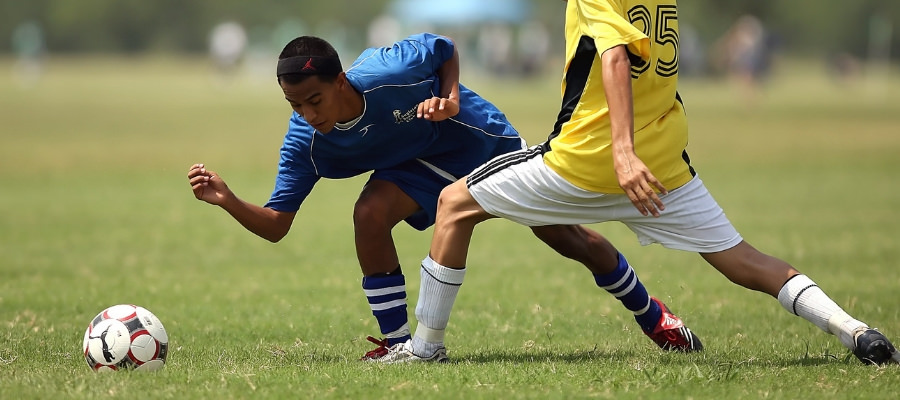All sports, while they can improve physical fitness, carry at least some risk of injury. Parents are aware of this risk of injury when they enroll their children to participate in sports activities in school, at summer camps, and in youth sports leagues. For some young athletes, as well as their parents, the idea of “taking one’s lumps” that occur as a result of playing contact sports, is part of the appeal; and that the inevitable, and usually minor injuries, are to be expected. However, serious injuries that happen during sports practice can be a source of financial hardship for families and may be the result of someone’s negligence.
Children Get Injured Playing Sports
Sports injuries are very common, even in children. Most of them are simple accidents that result from playing the sport properly, and most of the injuries are minor and lead to a full recovery. Here are some facts about sports injuries in children:
30 million children in the United States play organized sports each year, and every year there are 3 million injuries serious enough to require medical treatment, approximately one injury for every 10 child athletes. These figures only include children ages 14 and younger.
Approximately three out of every five injuries occur during practice, while the other two out of five happen at games. One factor that leaves children more vulnerable to being injured during practice is that parents are more consistent in observing safety precautions during competitive games than they are during practice.
Team sports involving physical contact, such as football, soccer, rugby, basketball, and hockey represent the greatest number of injuries, although these injuries are usually minor. The most severe injuries are related to gymnastics and swimming.
The Waiver and a Child Getting Injured During Participation
Almost all youth sports programs require parents to sign waivers holding the sports program harmless for most accidents. Whether a personal injury lawsuit related to a youth sports injury has merit depends on whether the injured child’s parents can prove gross negligence on the part of the coach, the management of the facility where the child was injured, or a third party. Gross negligence is different than ordinary negligence and, in Massachusetts, it is defined as “…very great negligence, or the absence of slight diligence, or the want of even scant care.” In sum, it means basically a blatant and total disregard for the care and safety of others, either intentionally or recklessly. Also, where a statutory duty is violated, meaning a law requiring certain conduct or to refrain from certain conduct, a waiver may be held unenforceable. However, in most jurisdictions, an entity or person may contract against liability for ordinary negligence for injuries sustained during the participation of your child in its activity or sport.
The Best Advice on Liability in Youth Sports Injury Cases
Youth sports waivers and the standards of gross negligence or violation of a statutory duty are complicated issues, and a personal injury or sports injury attorney can advise you as to how to proceed. If you believe your child’s sports injury was a result of gross negligence or where someone or entity violated a requirement under statutory law, contact a personal injury lawyer today.

